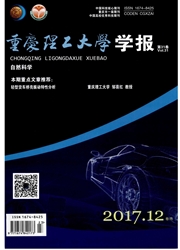

 中文摘要:
中文摘要:
摘要:随着食品科技的不断发展和新技术的广泛应用,消费者对成分日益复杂的食品的相关信息的获取能力愈发不足,从而导致消费者掌握的食品相关信息与食品生产者能够提供的食品信息相距甚远。我国《消费者权益保护法》第八条规定的“知悉真情权”有可能无法得到充分保障。因而,作为展示食品有关信息的最主要载体之一——食品标签,应当受到立法机关的重点关注。通过制定相应的强制性规范和非强制性规范(如行业规章、行业标准等),规范从生产到销售流通各环节相关主体与食品标签相关的行为,从而确保食品标签能够充分展示消费者有权获取的信息,消除信息不完全、不对称问题。通过对部分发达国家食品标签中健康说明的立法考察,尤其是美国先进的健康说明法律制度,借鉴其信息反馈机制的制度设计,为目前我国存在的健康说明信息共享、交流的立法不完善等问题提供解决方案,以保证消费者、第三方组织以及行政机构在我国食品标签健康说明的适用中发挥各自的积极作用。
 英文摘要:
英文摘要:
With the continuous development of food technology and the wide application of new technology, the consumers are increasingly feeling incapability of acquiring the complex ingredients of food information, which leads to consumers' grasped food information far less than what the food producers could provide. Therefore, "consumers' right to know" in Art. 8 of China' s Consumer Protection Law may not be fully guaranteed. Thus, the food labeling, as the main carrier of food information, should be the focus of the concerning legislation. Through the establishment of the corresponding mandatory standards and optional specifications (such as industry regulations, standards, etc. ), regulating the behavior of subjects from production to sales circulation specification related with food labeling, could ensure that food labeling fully express the information what the consumers shall have the right to obtain, eliminate the problem of incomplete asymmetric information so as to safeguard the consumers' right to safe, nutritious food. In some developed countries, the health claim in food labeling law shows that, especially the advanced health legal system, their design of the information feedback mechanism could be references for our country' s solutions for information sharing in health claim and imperfect legislation in communication problems so as to ensure that consumers, the third party organization and administrative authorities in our country play their correspondent positive role in application of health claim of food labeling.
 同期刊论文项目
同期刊论文项目
 同项目期刊论文
同项目期刊论文
 期刊信息
期刊信息
